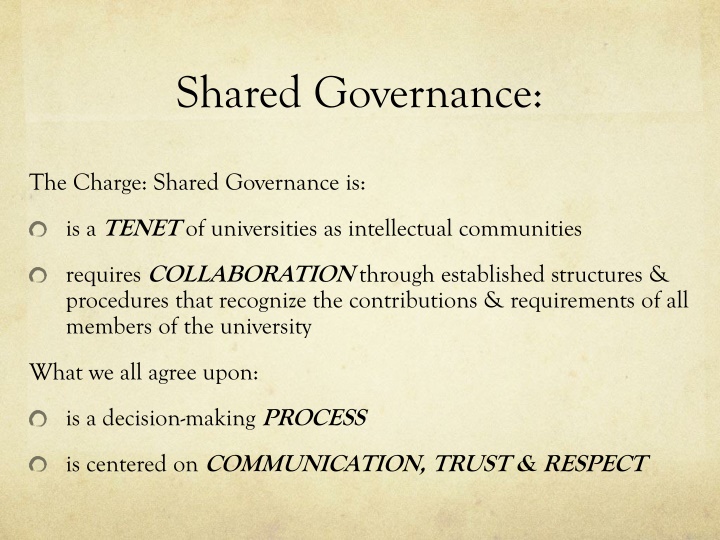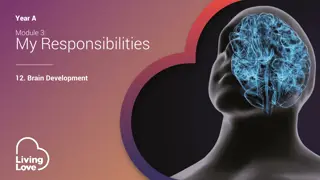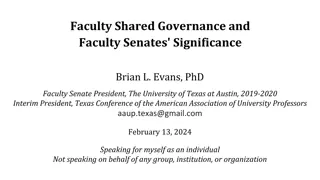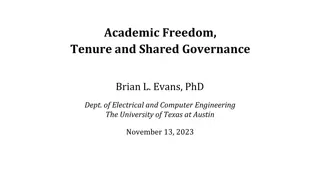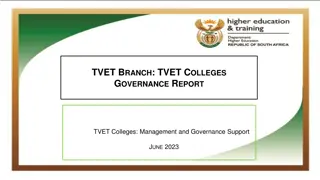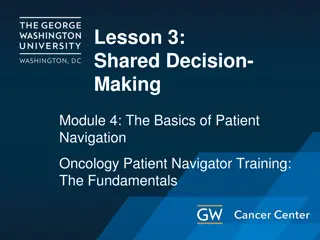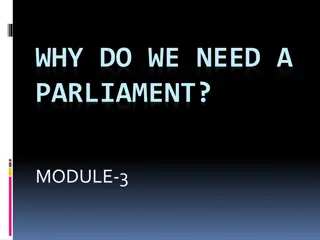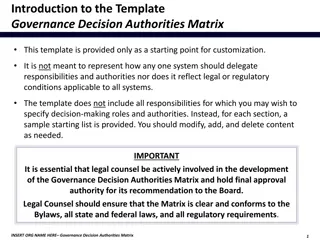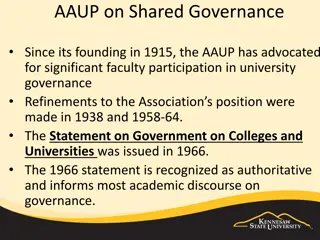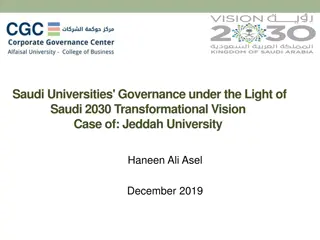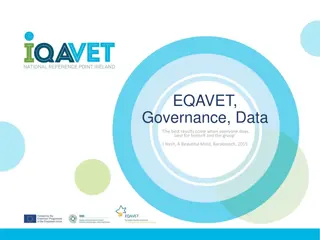Enhancing Shared Governance at University: Collaborative Decision-Making
Shared Governance is a vital part of universities, requiring collaboration and respect among all members. Learn about the ongoing efforts to clarify and improve shared governance at UW through open discussions and educative experiences.
Download Presentation

Please find below an Image/Link to download the presentation.
The content on the website is provided AS IS for your information and personal use only. It may not be sold, licensed, or shared on other websites without obtaining consent from the author.If you encounter any issues during the download, it is possible that the publisher has removed the file from their server.
You are allowed to download the files provided on this website for personal or commercial use, subject to the condition that they are used lawfully. All files are the property of their respective owners.
The content on the website is provided AS IS for your information and personal use only. It may not be sold, licensed, or shared on other websites without obtaining consent from the author.
E N D
Presentation Transcript
Shared Governance: The Charge: Shared Governance is: is a TENET of universities as intellectual communities requires COLLABORATION through established structures & procedures that recognize the contributions & requirements of all members of the university What we all agree upon: is a decision-making PROCESS is centered on COMMUNICATION, TRUST & RESPECT
What brings us to this moment? Great Colleges to Work For survey. (& HLC & now State) GC Survey showed: An erosion of confidence in and understanding of shared governance at UW Shared governance means different things to different people. The scopes of authority and responsibility are not clearly understood.
The Shared Governance Working Group: o Caroline McCracken-Flesher (Professor, English & a past chair of Faculty Senate) Working Group Chair o Jacquelyn Bridgeman (Professor of Law; Director, School of Culture, Gender & Social Justice) o Adrienne Freng (Chair, Criminal Justice & Sociology; Chair elect Faculty Senate) o Warrie Means (Assoc Dean Agriculture and Natural Resources, and a past chair of Faculty Senate) o Robert Sprague (Professor, Legal Studies in Business)
Charge to SGWG: to engage the university community in open discussions about shared governance at UW, and to provide educative experiences that will clarify and improve understanding of shared governance at UW. Para 4
Desired Outcomes: PYTHIAN PAPER on Shared Governance that, at minimum, addresses cornerstone principles and provides recommendations for good practice, and any additional RECOMMENDATIONS for restructuring of procedures or processes that may be needed to support successful shared governance. (note: SIWG role)
Process: Ongoing Deep research into Shared Governance best practices Fall 2019 Survey All UW Employees Spring-Summer 2020 Focus Groups Faculty, Staff, Student representatives, Academic VPs, Admin. VPs, Former Presidents, Trustees Fall 2020 Draft Pythian Paper
Prompts: Four Concepts of S-G Shared Governance as Equal Rights. Shared Governance as Consultation.. Shared Governance as Rules of Engagement. Shared Governance as a System of Aligning Priorities. Shared governance is a system of open communication aimed at aligning priorities, creating a culture of shared responsibility for the welfare of the institution, and creating a system of checks and balances to ensure the institution stays mission-centered. Association of Governing Boards
The Questions So Far SURVEY: What model do we pursue? What model do you prefer? >Aligning priorites FOCUS GROUPS: What do we do well? / What are our ideals? What are our challenges? What are our strengths/opportunities toward aligning priorities? Where and how do we share responsibilities and decision making? (given particular roles)
Emerging Themes All constituencies are committed to UW s mission of teaching, research, and service to the state. All agree we need to: Align Priorities Have and follow established processes Make our processes properly consultative (including the appropriate stakeholders) Value service, prepare for service, and select of our best for service
Emerging Definitions: A University is an intellectual community whose members carry unique roles and responsibilities to knowledge, education, and the community at large. Consultation means initiating discussion early, at the appropriate levels, hearing what is said, and communicating back. Leaders are members of the community. Service is a key component of the successful intellectual community. Communities need to prepare their members for service, and to select of their best for service.
Shared Vision: When priorities are aligned and processes are honored, there is a trust dividend that builds and maintains a functional intellectual community of faculty, students, administrators and state
Next Steps: (Then A Pythian Paper Occurs )
Our Role Today 1. We re always happy to talk 2. We re even more happy to listen 3. And September, we write
